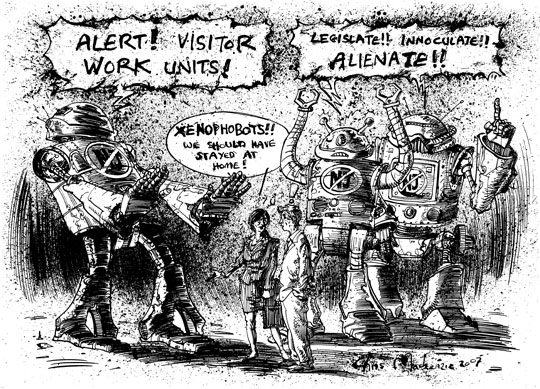We all notice it eventually: how nice individual Japanese people are, yet how cold — even discriminatory — officialdom is toward non-Japanese (NJ). This dichotomy is often passed off as something "cultural" (a category people tend to assign anything they can't understand), but recent events have demonstrated there is in fact a grand design. This design is visible in government policies and public rhetoric, hard-wiring the public into fearing and blaming foreigners.
Start with the "us" and "them" binary language of official government pronouncements: how "our country" ("wagakuni") must develop policy for the sake of our "citizens" ("kokumin") toward foreign "visitors" (rarely "residents"); how foreigners bring discrimination upon themselves, what with their "different languages, religions, and lifestyle customs" an' all; and how everyone has inalienable human rights in Japan — except the aliens.
The atmosphere wasn't always so hostile. During the bubble economy of the late '80s and its aftermath, the official mantra was "kokusaika" (internationalization), where NJ were given leeway as misunderstood outsiders.



















With your current subscription plan you can comment on stories. However, before writing your first comment, please create a display name in the Profile section of your subscriber account page.